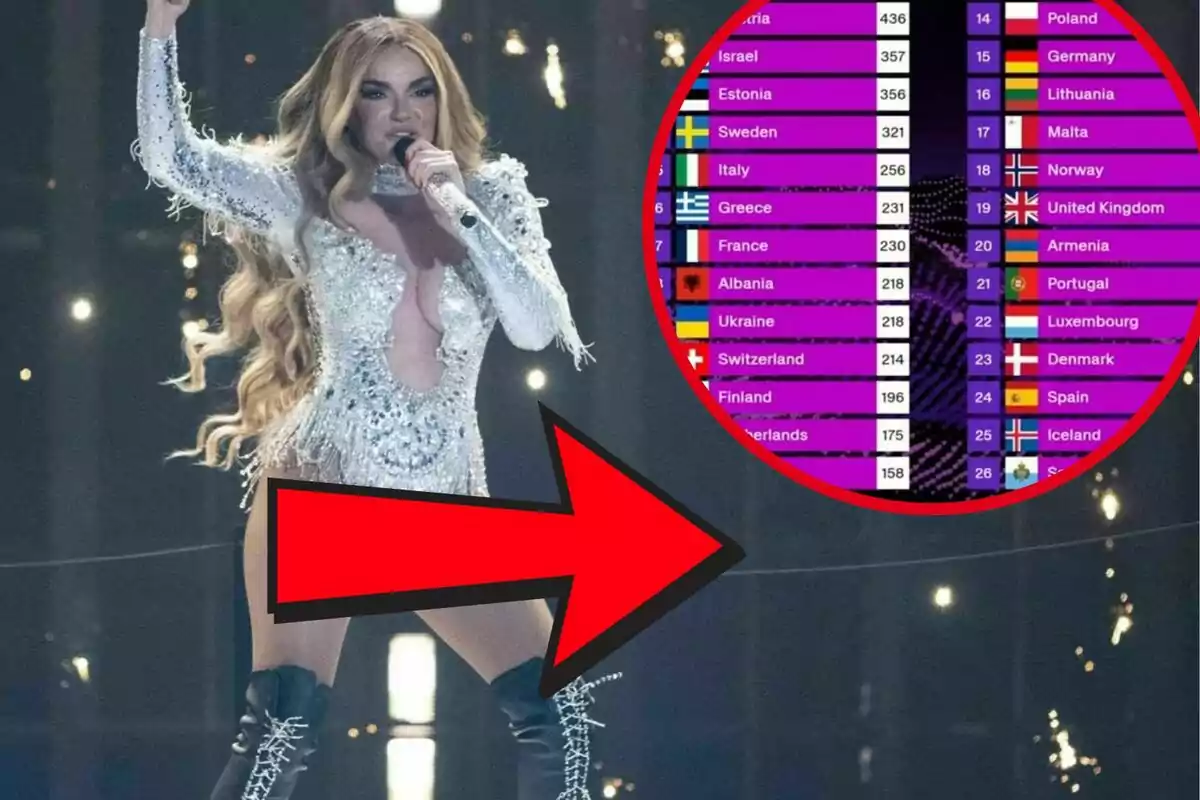The 69th edition of the Eurovision Festival, held in Basel, has left a trail of controversies that threaten to overshadow the victory of the Austrian JJ. At the center of the controversy is the televoting system, questioned by several countries after Israel's unexpected second place. The director of the contest, Martin Green, has broken his silence with an open letter that could mark a turning point in the history of the competition.
Israel's performance takes second place
The performance of Yuval Raphael, Israel's representative, caused mixed reactions. During rehearsals, there were boos from the audience that were silenced in the official broadcast with pre-recorded applause, sparking accusations of censorship and favoritism by the organization.
Despite the tensions, Israel received the highest televote score in more than 10 countries, including Spain and Belgium, which surprised many given the political context and the support campaigns for Palestine in those nations. Subsequent investigations revealed that an Israeli government agency digitally promoted voting in favor of its representative through Google advertising and a YouTube campaign.

Eurovision breaks its silence
Martin Green, director of the European Broadcasting Union (EBU), defended the validity and security of the televoting system, assuring that it is "meticulously reviewed and verified" and includes multiple security mechanisms supervised by experts with decades of experience. However, he acknowledged the possibility of reviewing aspects such as the number of votes allowed per person in future editions.
RTVE, meanwhile, sent a letter to the EBU requesting an independent audit and a complete review of the televoting system, expressing great concern about the transparency, legitimacy, and integrity of the voting process and Israel's participation in the contest. The Spanish Prime Minister, Pedro Sánchez, also questioned Israel's participation, appealing to consistency in the application of international standards.
Other countries, such as Finland, Ireland, the Netherlands, and Iceland, joined the criticism, requesting a review of the voting system and questioning Israel's inclusion in the contest. The controversy has reignited the debate about the politicization of Eurovision and the need to ensure fairness and transparency in the competition.

Criticism of Israel's presence in the contest
Amid this tense climate, the winner JJ called for reflection on the participation of countries involved in armed conflicts, although he later nuanced his statements to avoid them being interpreted as a direct call for exclusion
The EBU has announced that it is in contact with concerned broadcasting organizations and is committed to continuing to improve the system according to recommendations drawn from the annual analysis. However, the pressure for a deep reform of the voting system and a review of participation criteria continues to increase.

